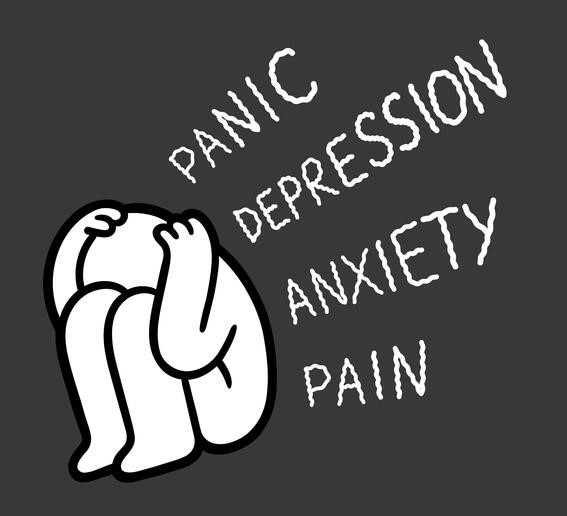- Home
- About Us
- Services
- Treatments
- Acid Reflux
- Allergic Rhinitis
- Alcoholic Fatty Liver
- Ankylosing Spondylitis
- Anxiety / Stress
- Arthritis
- Asthma
- Cervical Spondylitis
- Celiac Infection
- Colitis
- Constipation
- Dermatitis
- Detox Programme
- Diabetes (Madhumeha)
- Hair Fall
- Headache
- Hormonal Imbalance
- Hypertension
- Insomnia
- Irritable Bowel Syndrome
- Lungs Disease
- Migraine
- Neurological Disorder
- Non Alcoholic Fatty Liver
- Obesity Management
- Pain Management
- PCOD
- PCOS
- Sciatica Pain
- Sinusitis
- Skin Disorder
- Slip Disc
- Stress Management
- Thyroid
- Weight Management
- Techno-Ayurveda
- Media
- Blog
- Contact Us

Anxiety / Stress
Understanding Anxiety & Stress
In Ayurvedic terms, stress and anxiety arise when there is an imbalance in the body’s vital energies, or doshas. These imbalances can be triggered by various factors, including diet, lifestyle, emotions, environmental stressors, and even genetics.
Vata Imbalance:
Vata is the energy of movement, related to air and space elements. When vata dosha is imbalanced, it can manifest as restlessness, excessive mental chatter, worry, fear, and anxiety. People with a vata imbalance often feel overwhelmed by stress and may experience insomnia or difficulty concentrating.Pitta Imbalance:
Pitta represents fire and water and governs metabolism, digestion, and transformation. When pitta dosha is aggravated, it can lead to feelings of frustration, irritability, anger, and stress. Chronic stress in this state may lead to burnout or a short temper.Kapha Imbalance:
Kapha is the energy of stability, earth, and water. When kapha dosha is out of balance, it can cause feelings of heaviness, lethargy, and stagnation. People with kapha imbalances may feel emotionally numb, detached, or overly complacent, leading to stress due to unfulfilled desires or emotional isolation.
The effects of prolonged stress and anxiety in Ayurveda are considered deeply interconnected with the mind-body system. Imbalances lead to the accumulation of toxins (ama) in the body, which may cause or exacerbate physical and mental health conditions.
Symptoms of Anxiety & Stress
1. Muscle Tension
2. Trouble Sleeping
3. Headaches
4. Increased Sweating
5. Feelings Of Overwhelm
6. Restlessness
7. Increased Heart Rate
8. A Feeling of Impending Doom
9. Dizziness
10. Anger Or Irritability
11. Changes In Appetite
12. Tingling Or Numbness
13. Brain Fog
14. Digestive Issues, Including Nausea and Diarrhea
Common Causes of Anxiety / Stress

Trauma
Trauma, including physical or emotional experiences such as accidents, abuse, or loss, can trigger anxiety and stress. These events disrupt emotional well-being, causing the body to enter a heightened state of alert, which may lead to persistent anxiety and stress responses.

Stress Related to Illness
Stress related to illness can exacerbate anxiety by creating a cycle of worry and fear about health. Chronic illness or the fear of becoming ill can lead to heightened stress responses, worsening anxiety symptoms and affecting overall emotional well-being.

Accumulated Stress
Environmental factors, such as work pressure, family conflicts, noise, or financial instability, can contribute to anxiety and stress. Chronic exposure to these stressors may overwhelm coping mechanisms, leading to accumulated stress, which can affect both mental and physical health over time.

Diverse Personalities
Diverse personalities can influence vulnerability to anxiety and stress. Individuals with sensitive or introverted traits may experience heightened stress responses, while those with perfectionist tendencies may struggle with constant pressure. Personal coping mechanisms also shape how stress is managed.
Panchakarma Ayurvedic Treatment for Anxiety & Stress
Anxiety and stress are among the most common mental health issues faced in modern times, leading to both physical and emotional imbalances. In Ayurveda, stress and anxiety are viewed as disturbances in the body’s natural flow of energy, specifically the vata and pitta doshas, which can lead to physical and mental exhaustion. Panchakarma, the ancient Ayurvedic system of detoxification and rejuvenation, offers a holistic approach to alleviate anxiety and stress by restoring balance to the body, mind, and spirit. Through a series of therapeutic treatments, Panchakarma helps reduce mental tension, calm the nervous system, and promote overall well-being.
Supporting Therapies for Anxiety & Stress Management
1. Rasayana (Rejuvenation Therapy)
- Purpose: Rasayana therapies focus on rejuvenating the body, boosting vitality, and restoring health after a detoxification process.
- Benefits: Rasayana herbs and treatments support the nervous system, helping to rebuild mental and physical strength. These rejuvenating treatments help prevent burnout, restore energy, and combat the mental and physical effects of chronic stress.
2. Yoga and Pranayama (Breathwork)
- Purpose: Yoga and pranayama (breathwork) are essential components of Ayurvedic healing. These practices help harmonize the body and mind, enhance mental clarity, and reduce stress.
- Benefits for Anxiety & Stress: Regular yoga practice calms the nervous system, improves flexibility, and relieves tension. Specific poses (asanas) help release stored emotions, reduce physical tension, and promote relaxation. Pranayama techniques such as Nadi Shodhana (alternate nostril breathing) and Bhastrika (bellows breath) help regulate the breath and reduce anxiety by calming the mind and reducing stress.
3. Herbal Supplements for Anxiety & Stress
Ayurvedic herbs are often used in conjunction with Panchakarma to support mental and emotional well-being. Some commonly used herbs include:- Ashwagandha: Known as a powerful adaptogen, ashwagandha helps the body cope with stress and enhances resilience. It calms the mind and reduces anxiety.
- Brahmi: A calming herb that supports cognitive function and mental clarity, reducing anxiety and stress.
- Jatamansi: Known for its calming effects, jatamansi reduces mental tension and promotes relaxation.
- Tulsi (Holy Basil): Tulsi is revered for its ability to reduce stress, promote mental clarity, and boost the immune system.
4. Diet and Lifestyle Adjustments
In Ayurveda, diet and lifestyle play a significant role in managing stress and anxiety. Some dietary recommendations include:- Warm, nourishing foods: Eat easily digestible, warm foods such as soups, stews, and herbal teas to calm the mind and nourish the body.
- Avoid stimulants: Reduce intake of caffeine, alcohol, and sugar, as they can aggravate vata and pitta doshas, leading to increased stress and anxiety.
- Routine: Establishing a regular routine for eating, sleeping, and working helps balance the doshas and reduce stress.
- Sleep hygiene: Prioritize restful sleep by creating a peaceful bedtime routine, including practices such as abhyanga (oil massage) before bed.
FAQs of Anxiety / Stress
Anxiety is a persistent feeling of worry or fear, while stress is a physical and emotional response to external pressures. Anxiety often lasts longer, while stress tends to arise from specific situations.
Common causes include work pressure, financial issues, relationship problems, health concerns, or trauma. Genetics, brain chemistry, and life experiences can also contribute to heightened anxiety or stress levels.
Stress and anxiety can be managed through relaxation techniques, exercise, therapy (such as CBT), mindfulness practices, medication, and maintaining a healthy lifestyle.
